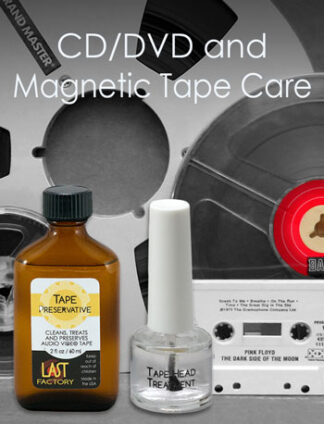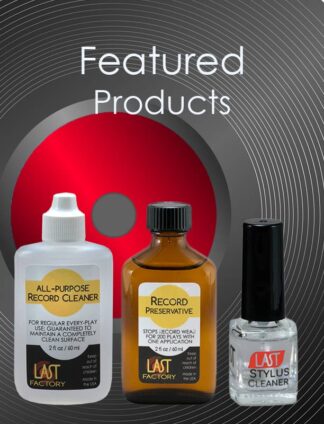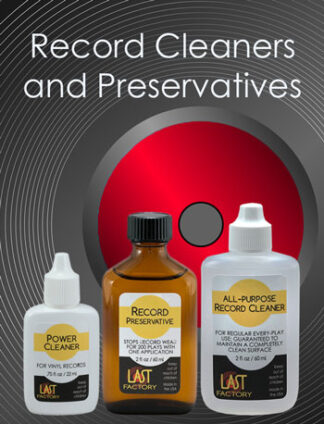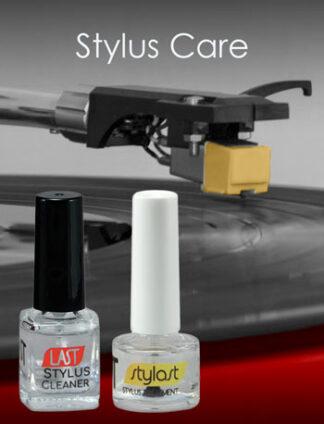Hi Walter,
I found you online after googling everything to do with cassette tape problems. In the last year I’ve started buying pre-recorded cassettes to play on my new (old) Nakamichi – never knew they could sound so fine – always been a vinyl man until now. So 125 tapes later and all the interesting issues are starting to turn up…
A few tapes I’ve had played ok till the last couple of songs when the wobbly sound started – rewound to the beginning and then… the first song’s now got it bad, ending in tape squeal and deck shut-down. Trying to get my head around why it would play ok the first time?? but the question is: would your Tape Preservative cure this? Being relatively new to tape culture I’m just not 100% sure I understand what’s going on in this case, and the benefit of your wisdom would be a great boon. Anyway I will order some soon – I think I might need it with all the vintage tapes I can’t resist buying.
I have one more problem to run past you if I may. After playing a 1971 RCA tape that went all muffly on the last track, I discovered a load of gunk on my head. Proved really stubborn to shift. 95% has gone after trying IPA, Electrolube ECPS and Xylene (and er the end of a match). The sound is still not quite there – I have to get it all off, but I don’t know what to try next. I’ve read a bit on re-lapping (just out of interest) and I’m wondering what the final polishing agent would be, and would that be the right course of action in this case? Hope you can help, you’re almost my last hope.
Many thanks, T.
Dear T,
I have some thoughts and a few suggestions which (I hope) may resolve some of the issues/problems.
I’ll address the load of gunk first, because the conditions that allow gunk to happen may create some of the other problems. Any buildup on the heads or tape guides can affect the smooth movement of tape. Therefore, all of those stationary surfaces have to be kept clean and free of buildup. The use of an appropriate swab along with Technical Grade (99%) IPA (isopropyl alcohol) is usually all that is necessary to keep the surfaces clean and shiny. If available, ask for the Technical Grade (not Rubbing Alcohol). If more aggressive cleaning/treatment is required, I suggest the use of a pencil eraser. I keep a small plastic tube of white rubber erasers designed for “Pentel” pencils with a small stash of cleaning supplies close to the equipment rack.
Addressing the wobbly sound and tape squeal, I have some additional thoughts. Most of your tape is probably two decades old (or older). The tape is coated with a poly-ester matrix that holds the magnetic particles. However, over that period of time, that matrix has undergone significant changes. If you have ever opened a canister holding a reel of tape or movie film and smelled a vinegar odor, you have direct experience with the degradation. You are smelling acetic acid which is one of the starter elements used when creating esters. And esters are joined and linked to make Poly-ester. The breakdown of the poly-ester has left components that have diffused to the surface of the matrix. And that has been accumulating on the heads and guides, causing the tension on the pinch roller, leading to deck shut down.
The LAST Tape Preservative can certainly help by reducing the “stiction” attractant between the tape and the machine, allowing the tape to pass more smoothly and consistently through the play process. The Tape Preservative also acts to seal the matrix against the intake of oxygen from the atmosphere. Oxygen is the agent that brings about the disassociation of the polyester.
Finally, re-lapping a head (or heads) of a Reel-to-Reel Tape Recorder is one thing. Attempting to do so on a cassette machine is quite another. I think that the depth of the “gap” on a cassette head is insufficient to consider re-lapping. One could begin to loose upper frequency response as soon as any re-lapping is attempted.
I hope this is helpful. You have accumulated a significant library of music on cassette. I hope this helps in the enjoyment of it.
Best regards, Walter Davies





